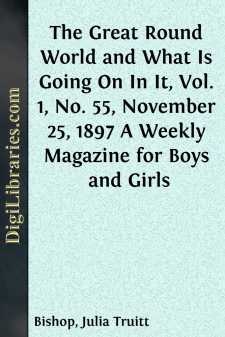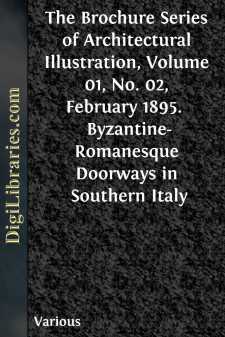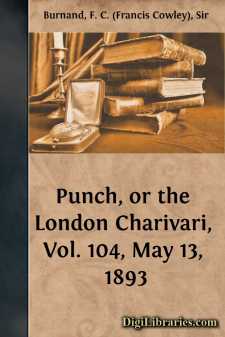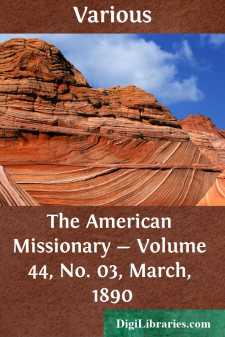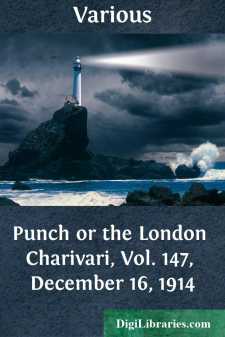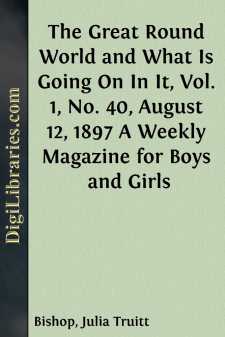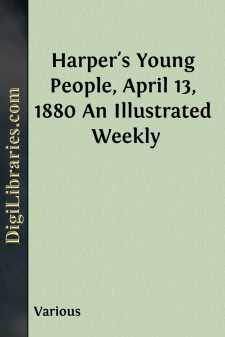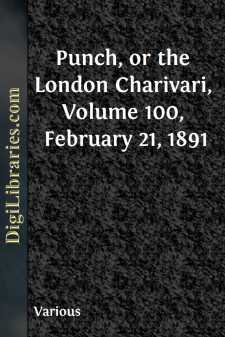Periodicals
- Art 27
- Children's periodicals 59
- Entertainment 5
- Food/Wine 2
- Games/Humor 455
- General 661
- Health 1
- History 53
- House/Home 1
- Regional 62
- Science/Nature 118
- Transportation 10
Periodicals Books
Sort by:
This has been an exciting week for Cuban matters. We told you that we might expect to hear more from Mr. Taylor's article on Cuba in The North American Review. We were quite right in our supposition. The Madrid papers took the matter up indignantly, and it has been the main point of interest during the last few days. If you remember, we told you that Mr. Taylor said, in his article, that Spain did...
more...
by:
Various
BYZANTINE-ROMANESQUE DOORWAYS IN SOUTHERN ITALY. The illustrations chosen for this issue are all from the Byzantine Romanesque work in the province of Apulia, that portion of Southern Italy familiar in school-boy memory as the heel of the boot. Writers upon architecture have found it difficult to strictly classify the buildings of this neighborhood, as in fact is the case with most of the medieval...
more...
No. X.—THE BEHRING-SEA ARBITRATION. (Scene and Persons as usual. The Conversation has already begun.) First Well-informed Man (concluding a tirade). —— so what I want to know is this: are we or are we not to submit to the Yankees? It's all very well talking about Chicago Exhibitions and all that, but if they're going to capture our ships and prevent us killing seals, why, the sooner we...
more...
by:
Various
Communications Relating to the work of the Association may be addressed to the Corresponding Secretaries; letters for "THE AMERICAN MISSIONARY," to the Editor, at the New York Office; letters relating to the finances, to the Treasurer. In drafts, checks, registered letters, or post-office orders, may be sent to H.W. Hubbard, Treasurer, Bible House, New York, or, when more convenient, to either...
more...
by:
Various
THE BRITISH SANITARY CONGRESS. ADDRESS OF PRESIDENT GALTON. The Congress of the Sanitary Institute of Great Britain was opened inNewcastle on September 26. The inaugural public meeting was held in theTown Hall. Prof. De Chaumont presided, in the place of the ex-President,Lord Fortescue, and introduced Captain Galton, the new President. The President commenced his inaugural address by thanking, in the...
more...
by:
Various
December 16, 1914 T. P.'s Weekly, in some sprightly lines, suggests that Punch should appear daily. This would certainly not be a whit more strange than to issue a T. P.'s Weekly Christmas Number as is done by our contemporary. Answer to a Correspondent.—Yes, khaki is the fashionable colour for plum-puddings for the Front. Post hoc propter hoc? Extract from the Eye-Witness's...
more...
...PREMIUMS... TO ANY ONE SENDING US 4 NEW SUBSCRIBERS A Pocket Kodak Measures 2-1/4 x 2-7/8 x 3-7/8 inches, makes a picture 1-1/2 x 2 inches, and weighs only 5 ounces. Delivered ready for 12 exposures without reloading. The Lens is of the fixed focus type, and of sufficient length of focus (2-1/2 inches) to avoid distortion. Has improved rotary shutter and set of three stops for lens. The slides for...
more...
by:
Various
NANCY HANSON'S PROJECT. BY HOWARD PYLE. It was in the old Quaker town of Wilmington, Delaware, and it was the evening of the day on which the battle of Brandywine had been fought. The country people were coming into town in sledges, and in heavy low carts with solid wheels made of slices from great tree trunks, loaded with butter, eggs, milk, and vegetables; for the following day was market-day....
more...
by:
Various
VOCES POPULI. A ROW IN THE PIT; OR, THE OBSTRUCTIVE HAT. SCENE—The Pit during Pantomime Time. The Overture is beginning. An Over-heated Matron (to her Husband). Well, they don't give you much room in 'ere, I must say. Still, we done better than I expected, after all that crushing. I thought my ribs was gone once—but it was on'y the umbrella's. You pretty comfortable where you...
more...
by:
Various
CHAPTER I. The iceberg was moving. There was no doubt of it. Moving with a terrible sinuous motion. Occasionally an incautious ironclad approached like a foolish hen, and pecked at the moving mass. Then there was a slight crash, followed by a mild convulsion of masts, and spars, and iron-plates, and 100-ton guns, then two or three gurgles and all was still. The iceberg passed on smiling in triumph, and...
more...


